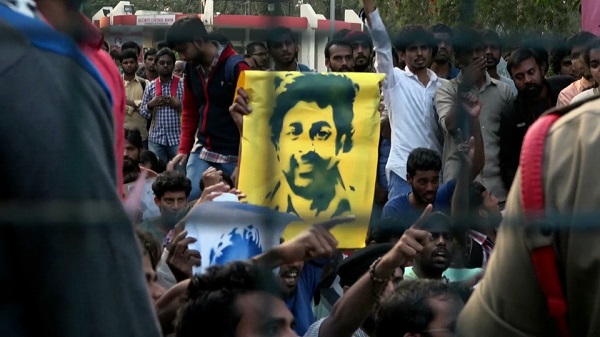
Directed by Deepa Dhanraj, the new documentary We Have Not Come Here to Die may begin with a suicide but it ends with a revolution. In January 2016, Dalit PhD research scholar Rohith Vemula made headlines with his tragic suicide. Vemula spoke out against the galvanizing caste system embedded within the mindset of the University of Hyderabad. And Vemula’s passing gave rise to protests throughout India by the passionately likeminded and challenged an ideology that has brought suffering to many for centuries.
Its narrative may be centred around Vemula’s death. But the film is actually far more concerned with India’s volatile political situation. There’s a lot of damage that India’s caste system inflicts to the soul of the nation. Persecuted for his ideas for civil reform, Vemula believed in the oppressiveness of the caste system and felt the weight of it pushed against him. Stifled at the hands of a suffocating system, Vemula’s mental health suffered, driving him to take his own life.
However, despite the tragedy his passing, his story resonated loudly with others. In response to his death, the call for social change became deafening. Many found inspiration by the tragedy of his death. Thus, citizens flooded the streets , finding their voice to protest against the discrimination that so many others experience on a daily basis. Their demonstrations may not have brought the national overhaul that they had hoped. However, it also began an essential conversation that governing powers long ignored. Vemula’s death is tragic. But it still manages to motivate millions to action in the fight for change.
In this way, Vemula’s life brought hope.
- Release Date: 10/29/2021


